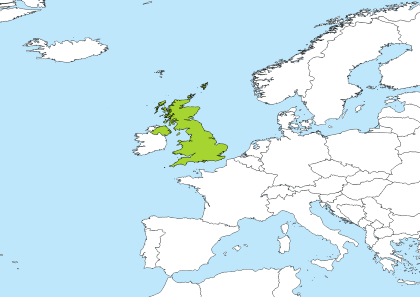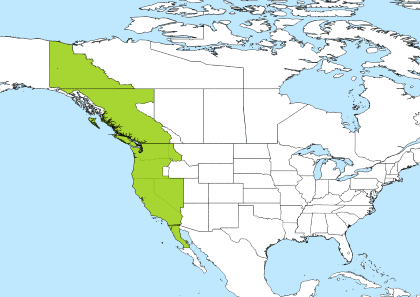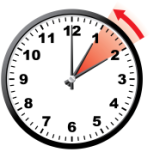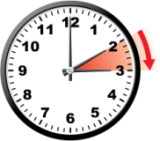BST to PDT Converter
Time Difference
Greenwich Mean Time is 8 hours ahead of Pacific Standard Time
12:00 am00:00 in GMT is 4:00 pm16:00 in PST
BST to PDT call time
Best time for a conference call or a meeting is between 4pm-6pm in BST which corresponds to 8am-10am in PDT
12:00 am00:00 Greenwich Mean Time (GMT). Offset UTC 0:00 hours
4:00 pm16:00 Pacific Standard Time (PST). Offset UTC -8:00 hours
12:00 am00:00 GMT / 4:00 pm16:00 PST
| GMT | PST |
|---|---|
| 12am (midnight) | 4pm |
| 1am | 5pm |
| 2am | 6pm |
| 3am | 7pm |
| 4am | 8pm |
| 5am | 9pm |
| 6am | 10pm |
| 7am | 11pm |
| 8am | 12am (midnight) |
| 9am | 1am |
| 10am | 2am |
| 11am | 3am |
| 12pm (noon) | 4am |
| 1pm | 5am |
| 2pm | 6am |
| 3pm | 7am |
| 4pm | 8am |
| 5pm | 9am |
| 6pm | 10am |
| 7pm | 11am |
| 8pm | 12pm (noon) |
| 9pm | 1pm |
| 10pm | 2pm |
| 11pm | 3pm |
| 0:00 | 16:00 |
| 1:00 | 17:00 |
| 2:00 | 18:00 |
| 3:00 | 19:00 |
| 4:00 | 20:00 |
| 5:00 | 21:00 |
| 6:00 | 22:00 |
| 7:00 | 23:00 |
| 8:00 | 0:00 |
| 9:00 | 1:00 |
| 10:00 | 2:00 |
| 11:00 | 3:00 |
| 12:00 | 4:00 |
| 13:00 | 5:00 |
| 14:00 | 6:00 |
| 15:00 | 7:00 |
| 16:00 | 8:00 |
| 17:00 | 9:00 |
| 18:00 | 10:00 |
| 19:00 | 11:00 |
| 20:00 | 12:00 |
| 21:00 | 13:00 |
| 22:00 | 14:00 |
| 23:00 | 15:00 |
British Summer Time
Offset: BST is 1 hour ahead Greenwich Mean Time (GMT) and is used in Europe
Countries: It is used in following countries: Britain (UK), Guernsey, Isle of Man, Jersey
Principal Cities: The largest city in the BST timezone is London from United Kingdom with population about 7.557 million people. Other major cities in the area are Birmingham, Glasgow, Liverpool, Saint Helier
Greenwich Mean Time (GMT) originally referred to the mean solar time at the Royal Observatory in Greenwich, London. It is now often used to refer to Coordinated Universal Time (UTC) when this is viewed as a time zone, and in casual use for the most parts it is the same. In military GMT is known as Zulu time.Greenwich Mean Time was the same as Universal Time (UT), until the introduction of UTC in 1972 a standard astronomical concept used in many technical fields.

BST representations, usage and related time zones
- +01 - basic short
- +0100 - basic
- +01:00 - extended
- +0100 - sign character (+) followed by a four digit time providing hours (01) and minutes (00) of the offset. Indicates one hour and zero minutes time differences to the east of the zero meridian.
- Alpha - Military abbreviation for BST
- A - short form of 'Alpha'
- Europe/Belfast
- Europe/Guernsey
- Europe/Isle_of_Man
- Europe/Jersey
- Europe/London
- GB
- GB-Eire
- British Summer Time - UTC +1
- Bangladesh Standard Time - UTC +6
- Bougainville Standard Time - UTC +11
- Brasilia Standard Time - UTC -3
- BST - British Summer Time
- CET - Central European Time
- IST - Irish Standard Time
- WEST - Western European Summer Time
- A - Alpha Time Zone
- CET - Central European Time
- MEZ - Mitteleuropäische Zeit
- WAT - West Africa Time
- WST - Western Sahara Summer Time
- BMT - Biel Mean Time
Pacific Daylight Time
Offset: PDT is 7 hours behind Greenwich Mean Time (GMT) and is used in North America
Countries: It is used in following countries: Canada, Mexico, United States
Principal Cities: The largest city in the PDT timezone is Los Angeles from USA with population about 3.793 million people. Other major cities in the area are Vancouver, Tijuana, San Diego, San Jose
French: HAP - Heure Avancée du Pacifique
Spanish: PT - Zona Noroeste

Daylight Saving: Pacific Daylight Time (PDT) is a daylight saving/summer time zone, however during winter some places adjust time for one hour back and observe Pacific Standard Time (PST).
 End: Pacific Daylight Time (PDT) has ended on Sunday, November 2, 2025 at 2:00 am local time and clocks were set one hour back to Sunday, November 2, 2025, 1:00 am local standard time instead. Daylight saving ends annually the on first Sunday of November
End: Pacific Daylight Time (PDT) has ended on Sunday, November 2, 2025 at 2:00 am local time and clocks were set one hour back to Sunday, November 2, 2025, 1:00 am local standard time instead. Daylight saving ends annually the on first Sunday of November
 Start: Pacific Daylight Time (PDT) starts on Sunday, March 8, 2026 at 2:00 am local time and clocks are set one hour forward to Sunday, March 8, 2026, 3:00 am. Daylight saving starts annually the on second Sunday of March
Start: Pacific Daylight Time (PDT) starts on Sunday, March 8, 2026 at 2:00 am local time and clocks are set one hour forward to Sunday, March 8, 2026, 3:00 am. Daylight saving starts annually the on second Sunday of March
PDT representations, usage and related time zones
- -07 - basic short
- -0700 - basic
- -07:00 - extended
- -0700 - sign character (-) followed by a four digit time providing hours (07) and minutes (00) of the offset. Indicates seven hour and zero minutes time differences to the west of the zero meridian.
- Tango - Military abbreviation for PDT
- T - short form of 'Tango'
- America/Ensenada
- America/Los_Angeles
- America/Santa_Isabel
- America/Tijuana
- America/Vancouver
- Canada/Pacific
- Mexico/BajaNorte
- PST8PDT
- US/Pacific
- MST - Mountain Standard Time
- PDT - Pacific Daylight Time
- YST - Yukon Standard Time
- T - Tango Time Zone
